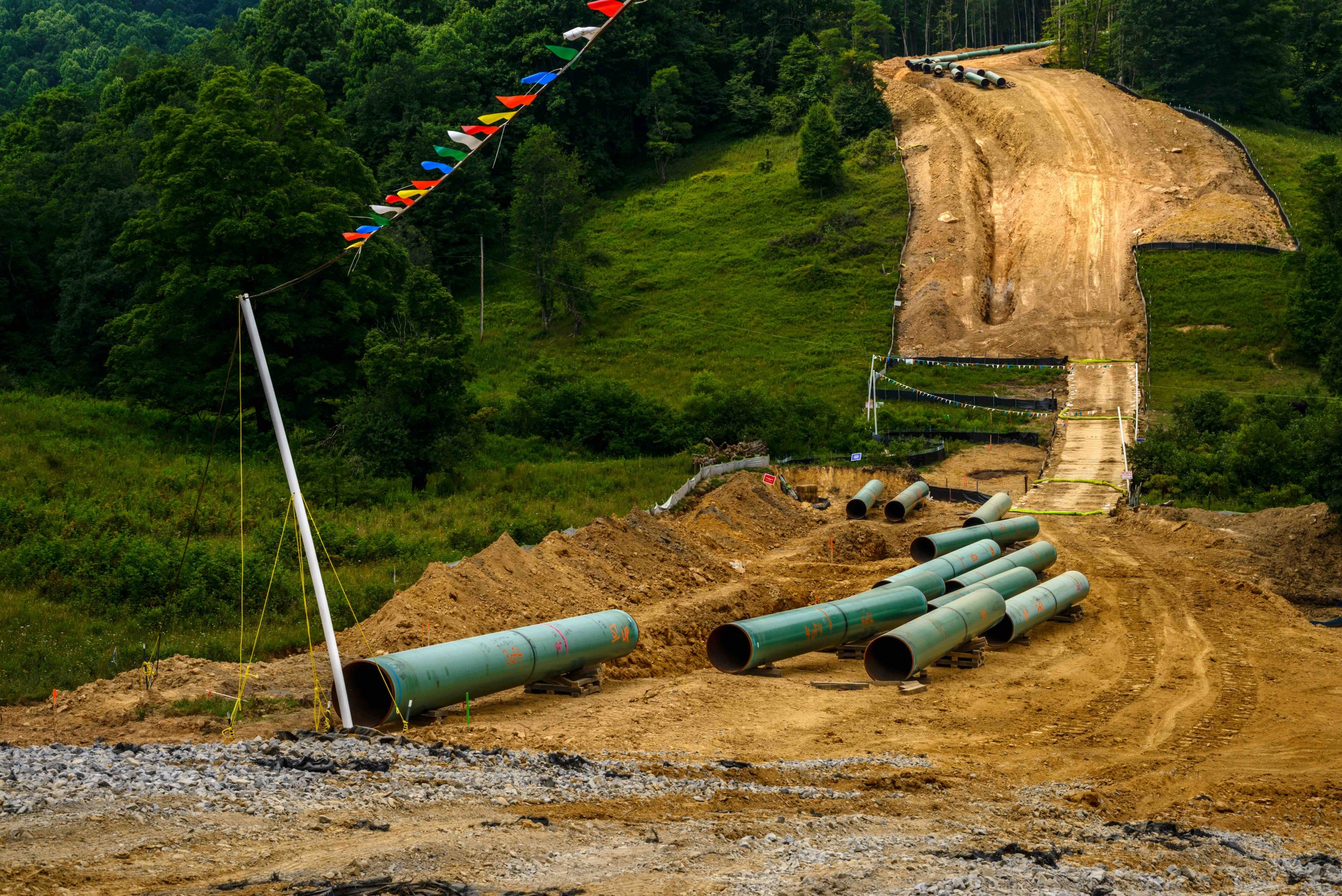Supreme Court rules in favor of Mountain Valley Pipeline


The Supreme Court on Thursday cleared the way for the completion of the Mountain Valley Pipeline, a controversial $6.6 billion natural-gas pipeline spanning just over 300 miles, from West Virginia’s northwestern border to southern Virginia. In a brief unsigned order, the justices lifted orders by the U.S. Court of Appeals for the 4th Circuit that had put construction in the Jefferson National Forest, in southern Virginia, on hold while challenges from environmental groups to the construction continue. There were no recorded dissents.
Thursday’s order by the Supreme Court was the latest chapter in the long-running dispute over construction of the pipeline, which began in 2018 and is – according to the pipeline company – nearly finished. The company contends that finishing the pipeline will provide a more reliable supply of natural gas at reasonable prices, while environmental groups counter that the project will harm waterways that are the home of endangered fish species.
As the dispute came to the Supreme Court, it centered on legislation enacted earlier this year by Congress to expedite the pipeline’s completion. On June 3, President Joe Biden signed the Fiscal Responsibility Act of 2023, a law passed to raise the federal debt ceiling. As a concession to Sen. Joe Manchin, a West Virginia Democrat, the act also included a provision that ordered federal agencies to issue any permits needed to complete the pipeline. That provision, Section 324 of the act, also stripped federal courts of the power to review challenges to those permits and channeled all challenges to the constitutionality of the act to the U.S. Court of Appeals for the District of Columbia Circuit.
But on July 10, the U.S. Court of Appeals for the 4th Circuit put construction on hold while litigation over the project continued; the 4th Circuit heard oral arguments in that challenge beginning at 10 a.m. on Thursday morning.
Mountain Valley Pipeline came to the Supreme Court on July 14. It asked the justices both to lift the 4th Circuit’s “extraordinary” orders stopping the company from completing construction on the pipeline and to make clear that the 4th Circuit did not have the power to issue those orders in the first place.
Time was of the essence, Mountain Valley Pipeline told the court, because the company has only “three months to complete the Pipeline before winter weather sets in and precludes significant construction tasks until the spring of 2024.” Keeping construction on hold, the company warned, will actually harm the environment because the earth is already disturbed; completing it will allow the environment to be “fully restored.”
And there is no dispute, the company insisted, that under Section 324, these challenges to the construction should be dismissed. The environmental groups’ only real argument, the company said, is that Section 324 is unconstitutional. But Section 324 specifically tasked the D.C. Circuit, rather than the 4th Circuit, with making that decision, the company emphasized.
The Biden administration agreed with the company that the 4th Circuit’s orders should be lifted. Section 324, Solicitor General Elizabeth Prelogar wrote, makes clear that the 4th Circuit did not have the power to temporarily block action by federal agencies allowing construction to go ahead. The court of appeals also lacked the power even to decide whether Section 324 is constitutional – which, Prelogar insisted, it is.
The environmental groups seeking to stop the pipeline urged the justices to leave the lower court’s orders in place. Emphasizing that the “effects of construction activities could be disastrous,” particularly for endangered species in the area where construction will take place, the groups stressed that, by contrast, the only harm to Mountain Valley Pipeline from allowing the process to play out in the court of appeals would be a “temporary financial loss.”
The groups maintained that Section 324 does not preclude the 4th Circuit from putting the pipeline construction on hold. Characterizing Section 324 as the product of a back-room deal brokered by lobbyists, the groups argued that the law violates the constitutional separation of powers – that is, it improperly infringed on the power of the courts. Congress, the groups wrote, cannot instruct federal courts “to reach particular results in particular pending cases,” but that is precisely what Congress did with Section 324.
The groups rejected any suggestion that Section 324 also bars the 4th Circuit from weighing in on its constitutionality. Section 324, they told the justices, only channels claims alleging that it is unconstitutional to the D.C. Circuit; it does not preclude the 4th Circuit, in this case, from considering their argument that the statute is unconstitutional – particularly when the text of Section 324 makes clear that it only applies to cases filed after the law was enacted.
In a one-paragraph order issued after the arguments in the 4th Circuit had already begun, the Supreme Court granted the pipeline’s request to lift the stay orders imposed by the lower court. The court did not grant the pipeline’s plea to direct the 4th Circuit to dismiss the environmental groups’ challenges altogether, but the justices left open the possibility that the pipeline could renew that request in the future.
This article was originally published at Howe on the Court.
Posted in Emergency appeals and applications
Cases: Mountain Valley Pipeline, LLC v. The Wilderness Society